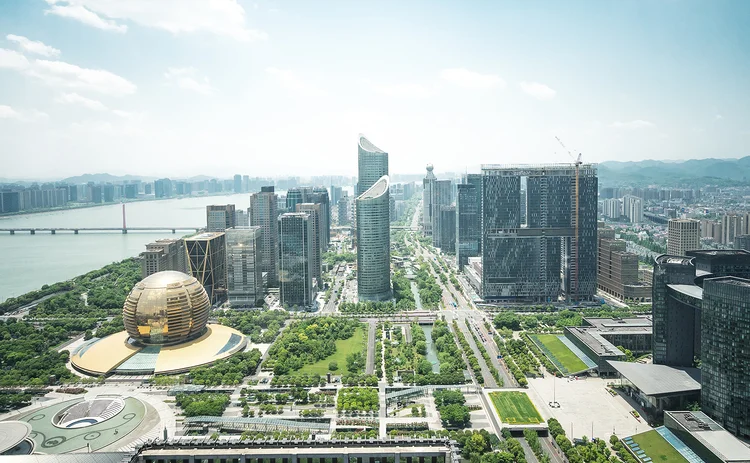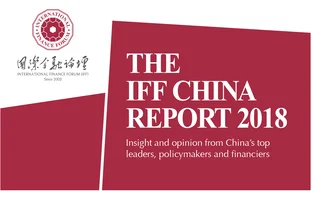
BRI and the participation of private capital
China is enthusiastically courting the influx of private capital into funding its ambitious Belt and Road Initiative but must offer more incentives, says Guo Feng, chief economist at Heaven‑Sent Capital Management Group


The significance of involving private capital
The Belt and Road Initiative (BRI) provides an important opportunity for the optimisation and upgrading of industrial structure, transforming comparative advantages into competitive ones. China’s Go Out policy petitions for the support of financial capital, which requires the integration of industrial capital and the globalisation of private sectors.
Although a series of China-led organisations – including the Silk Road Fund, the Asian Infrastructure Investment Bank and the New Development Bank, which was established by the Brics states of Brazil, Russia, India, China and South Africa – are helping to serve the BRI, the Chinese government is the main source of its funding. As an alternative, China needs to extend financial co-operation into more fields through new approaches in the spirit of innovation. The main reasons for this are as follows:

- It is difficult to effectively implement the BRI simply through one nation’s financial capacity, even though China itself is the initiator.
- The BRI might be challenged by public resistance if it is considered to be solely government-led.
- BRI projects entail longer payback periods and relatively higher risks.
Private capital, which is usually more sensitive to lucrative investment than government capital, could contribute to the profitability of BRI projects, while the government should take the lead in co-ordinating stakeholders. For private capital, this offers a great opportunity to integrate into developmental finance and gain a stake in the construction of the BRI.
China’s private sector is booming, creating 60% of GDP and 80% of jobs. In Zhejiang Province, private enterprise creates 90% of employment and makes up 80% of exports, 70% of GDP and 60% of tax revenue. Private capital in China has grown rapidly to become an important component of its total investment, mostly in the fields of manufacturing, business ventures, trade, logistics and real estate. However, private capital has accounted for only 2.1% of outward direct investment in the BRI, which does not match its status in the national economy. In light of government-favourable policy and an unquenchable desire to supply capital from the private sector, there will be a broader space for growth and development in the BRI for the participation of private capital in future.
Principal patterns of private capital participation
In the process of BRI development, state-owned capital such as the Silk Road Fund and other government-dominated funds can take leadership of Chinese capital ‘Go Out’ by signing agreements with private enterprises that possess abundant capital resources, advanced technology and better operational management capability. Private firms would be interested in teaming with public-sector entities as they are are more vulnerable and less mature than state-owned enterprises in terms of capacity for bearing risk. In this respect, Zhejiang Province has unique advantages in its 150 private enterprises that rank among the top 500 in China.
It makes sense for government funds to work closely with private capital in practice. On the one hand, the government publicly invites non-governmental partners to participate in sound and reliable projects and introduce excellent private equity investments as a market-complementary mechanism of corporate financing – which also helps private enterprise cope with BRI financing problems. On the other hand, private enterprises can set up overseas companies and invite related governmental funds or other organisations if they identify similarly reliable overseas projects. Private enterprises will be entitled to participate in the investment and construction of overseas projects and distribute benefits according to agreements signed with the government.
Private capital in China has grown rapidly to become an important component of its total investment, mostly in the fields of manufacturing, business ventures, trade, logistics and real estate
Major industries and projects in the countries along the Silk Road Economic Belt are advised to set up one or more alliance and take up overseas business ventures jointly with relevant official agencies, private enterprises, banks, equity funds and chambers of commerce. These alliances can involve strategic networks and investment platforms by developing partnerships with local project funds and investment organisations.
The BRI should weaken the impression of Chinese domination while emphasising inclusiveness and globalisation. To this extent, Hong Kong plays a crucial role in cross-border collaboration and ‘Going Out’ by exerting the strength of its resources and financial experience. Through this, the impression of Chinese domination can be softened. Meanwhile, it benefits domestic enterprises to deal with obstacles caused by a lack of knowledge around international market rules, language and culture.
Promoting the participation of private capital
Participation of private capital in the BRI requires reasonable profit and continuous attractive opportunities. Through the reform of services and environment improvements, such as developing private equity investment funds and encouraging private enterprises to set up industrial investment funds, the government can offer support and, according to a subscription quota, develop equity and bond financing. China can also actively promote renminbi international investment, loan funds and governmental guiding funds, with private capital as the main participator in light of the reform of the mixed-ownership economy. The Silk Road International Alliance is one of the best examples of this.
However, the government should offer sufficient subsidies and increase the rate of return on projects to attract more preivate enterprise. Meanwhile, as private capital participates in BRI construction, most companies – especially medium- and small-sized enterprises – are inevitably challenged by asymmetric information. The government should thus establish a more effective financial security system to hedge against financial risk caused by factor mobility and asymmetric information, to create a favourable investment and financing environment and promote social capital and the participation of private capital in the BRI more effectively.
Only users who have a paid subscription or are part of a corporate subscription are able to print or copy content.
To access these options, along with all other subscription benefits, please contact info@centralbanking.com or view our subscription options here: subscriptions.centralbanking.com/subscribe
You are currently unable to print this content. Please contact info@centralbanking.com to find out more.
You are currently unable to copy this content. Please contact info@centralbanking.com to find out more.
Copyright Infopro Digital Limited. All rights reserved.
As outlined in our terms and conditions, https://www.infopro-digital.com/terms-and-conditions/subscriptions/ (point 2.4), printing is limited to a single copy.
If you would like to purchase additional rights please email info@centralbanking.com test test test
Copyright Infopro Digital Limited. All rights reserved.
You may share this content using our article tools. As outlined in our terms and conditions, https://www.infopro-digital.com/terms-and-conditions/subscriptions/ (clause 2.4), an Authorised User may only make one copy of the materials for their own personal use. You must also comply with the restrictions in clause 2.5.
If you would like to purchase additional rights please email info@centralbanking.com test test test







